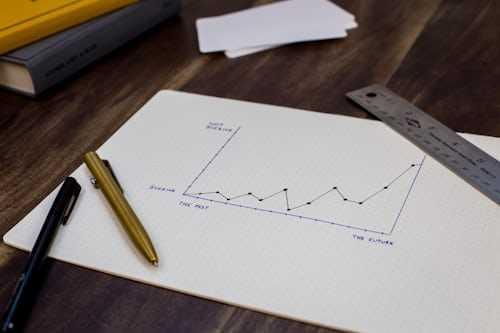The Science of Analysis Paralysis
Curated from: doist.com
Ideas, facts & insights covering these topics:
13 ideas
·32.5K reads
443
Explore the World's Best Ideas
Join today and uncover 100+ curated journeys from 50+ topics. Unlock access to our mobile app with extensive features.
Paradox of Choice
It means that while increased choice allows us to achieve objectively better results, it also leads to greater anxiety, indecision, paralysis, and dissatisfaction.
1.31K
6.95K reads
Overthinking lowers your performance
Our working memory is what allows us to focus on the information we need to get things done at the moment we’re doing them. It is also in limited supply. You can think of it like our brain’s computer memory. Once it’s used up, nothing more can fit in.
When you overanalyze a situation, the repetitive thoughts, anxiety, and self-doubt decrease the amount of working memory you have available to complete challenging tasks, causing your productivity to plummet.
1.39K
3.36K reads
Overthinking kills your creativity
A recent Stanford study suggests that over-thinking not only impedes our ability to perform cognitive tasks but keeps us from reaching our creative potential as well.
1.31K
3.49K reads
Overthinking eats up your willpower
You can think of willpower as a muscle. The more you use it, the more it wears out, leaving you feeling overwhelmed and exhausted.
When we agonize over a decision, we deplete our limited supply of willpower much more quickly, causing us to feel exhausted and overwhelmed.
1.32K
2.37K reads
Overthinking makes you less happy
Though analyzing every last option in the quest for the best choice may lead to an objectively better outcome in some situations, research suggests that this ultimately leads to more anxiety and regret and less happiness and satisfaction with your decisions.
1.26K
2.28K reads
Structure your day
Because our ability to make quality, long-term decisions deteriorates with each additional choice we make, big or small, successful people tackle their most important task first thing in the morning when their willpower reserves are at their fullest and try to make small decisions as automatic as possible.
1.28K
2.21K reads
Limit the amount of information
Efficiently manage information by determining what you want to learn from it first, then reading for that specific thing.
Another way to consume information is to determine the number of resources you’ll use first. Limit yourself to only those resources.
1.24K
2.11K reads
Set a deadline
Parkinson’s Law states that work expands to fill the amount of time you’ve allotted it. Setting a time constraint can force you to make a decision more efficiently.
Find a way to hold yourself accountable for your deadlines. Make your deadline as public as possible.
1.28K
1.89K reads
Know your main objective
Identifying and staying true to one main objective as the basis for decision-making helps you overcome a tendency to overthink.
What’s the most important thing for you personally and professionally? Write it down and find a way to remind yourself to review it regularly.
1.24K
1.62K reads
Talk it out with someone else
The next time you catch yourself thinking over a particular issue, again and again, schedule a meeting with a coworker, supervisor, mentor, or friend. Having to present your deliberations to someone else forces you to synthesize the information you’ve been collecting in a clear, concise way.
1.18K
1.48K reads
An iterative mindset
This concept is most associated with software development, particularly at fast-moving start-ups with few resources:
- Instead of trying to release a perfect version of a product that may or may not fit customers’ needs, focus on producing a “minimum viable product”.
- Getting an imperfect product out as quickly as possible allows a product team to use data and user feedback and identify what works and doesn’t work, and incorporate those learnings back into future iterations, of the product.
To break the gridlock of analysis paralysis, we can view each decision as an experiment to be tested. It gives us the freedom to choose something quickly because we know we can improve upon it later.
1.28K
1.45K reads
Start before you feel ready
Collecting and analyzing more and more information is a tempting way to try and overcome the uncertainty that comes with taking on big goals. In the end, action is what decides our ultimate success or failure.
So the next time you’re stuck in analysis mode, remember that successful people start before they feel ready and figure the rest out on the way.
1.33K
1.71K reads
Make your decision the right one
It’s tempting to believe that the best decision exists and we can figure out what it is by just researching deeper and thinking harder. The truth is that the options in front of you may be equally valid.
It’s often our confidence in and commitment to our decisions that determine whether they are the “right” ones in the end.
1.24K
1.57K reads
IDEAS CURATED BY
The first step in the acquisition of wisdom is silence, the second listening, the third memory, the fourth practice, the fifth teaching others.
Nicholas J.'s ideas are part of this journey:
Learn more about problemsolving with this collection
Cultivating self-awareness and self-reflection
Prioritizing and setting boundaries for self-care
Practicing mindfulness and presence
Related collections
Similar ideas
10 ideas
How To Stop Analysis Paralysis: 8 Important Tips
personalexcellence.co
4 ideas
What is Analysis Paralysis ? and overcoming perfectionism.
thinkinginbusiness.com
6 ideas
How to Push Past Your Analysis Paralysis | Scott H Young
scotthyoung.com
Read & Learn
20x Faster
without
deepstash
with
deepstash
with
deepstash
Personalized microlearning
—
100+ Learning Journeys
—
Access to 200,000+ ideas
—
Access to the mobile app
—
Unlimited idea saving
—
—
Unlimited history
—
—
Unlimited listening to ideas
—
—
Downloading & offline access
—
—
Supercharge your mind with one idea per day
Enter your email and spend 1 minute every day to learn something new.
I agree to receive email updates

